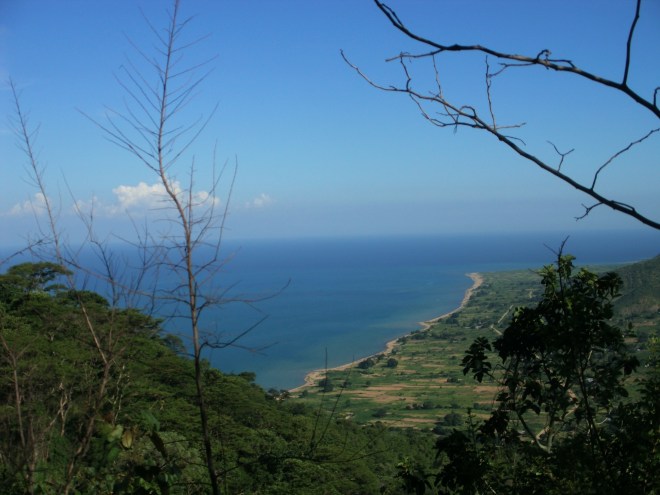
On our way from Zambia to Nkhotakota Bay Lake Malawi we passed by wonderful dramatic vistas, cassava fields, and rubber tree groves. It was sad leaving Zambia but seeing Lake Malawi again was exciting. My first visit was several years ago during another safari.

Lake Malawi is the third largest lake in Africa and the eighth largest in the world, with more species of fish than any other lake on earth. The massive lake lies between Malawi, Mozambique, and Tanzania. Now bilharzia free, the lake’s tropical waters are popular for snorkeling and diving.

Fish from Lake Malawi support poor village people who use handmade mokoros (dug-out canoes) to set out their fishing nets. Many ethnic groups live near the lake, and they speak a variety of African dialects.

Over the years, countless missionaries passed through the area and the majority of people living near the lake are Christian. Dr. David Livingstone first arrived at Lake Malawi in 1855 while attempting to stop slave trade. Accompanied by other missionaries, Livingstone returned in 1861 to establish a mission station at the southern area of the lake. Many of the missionaries in Livingstone’s group contracted malaria and other illnesses. They suffered from conflict with the slave-drivers. Many of those who survived moved to Zanzibar.


In 1866, during Livingston’s journey to discover the source of the Nile River, the explorer returned to Malawi again. In 1869 he travelled further north and lost contact with the rest of the world for almost two years.
In 1871 journalist Henry Stanley found Livingstone on the banks of Lake Tanganyika. You might be familiar with Stanley’s famous phrase – “Dr. Livingstone, I presume.”


Livingstone died in 1873 at a Zambian village called Chitombo. His death revived the desire of missionaries to come to Malawi and set up missions in various malaria-ridden areas. In his memory, they constructed Livingstonia, a malaria-free mission in the highlands of the Nyika Mountains. Livingstonia remains a working mission today and is open to visitors.

The old mission post includes a stone house, church, and museum. The museum founded by another Scottish missionary, Dr. Robert Laws, has an interesting collection of artefacts. The trek to the mission is a strenuous 8+ hour uphill hike. On the way, trekkers pass by spectacular Manchewe Falls.

After considering the steep slopes and extremely hot temperatures I passed on the hike to Livingstonia. Instead, I spent the day kayaking on Lake Malawi with a local guide, Josie (his English name).
The kayak outing with Josie is a fond memory. We kayaked for about 5 hours and went far out into the lake where we met fishermen on their dugout boats. Malawi fishermen paddle out at night, sleep on their boats, and begin fishing early in the morning. They are poor and have a hard existence.

The friendly young guide was open about his life in Malawi. He received a scholarship to study at a nearby school which will hopefully lead to another scholarship at a university. His parents are feeble, his brother disabled, and his sisters very young. It’s up to him to support his entire family and he works many jobs to do this.

Josie talked with me about Malawian politics and the growing dissatisfaction of the poor for the excesses and corruption of politicians in power. He mentioned talk of a new tax to be imposed on fishermen who are already struggling just to feed their families. Many protests are being held in the capital, Lilongwe.

During our second day at Lake Malawi we visited Mbewa Village. First we passed through a small day care center where the younger children (under 5) stay while their parents are working. Many of the teachers are volunteers. Then we walked further into the village where the older children go to school. They were excited to see us and it took quite a bit of coaxing by the teachers to get them to go back to their studies.

We ended our Mbewa visit with a tour of the health center which was alarmingly small and basic – of course with no air conditioning. They transport patients with more serious issues to Lilongwe for care.

Tomorrow it’s on to Tanzania!




Great Post
Beautiful places and people but sad that there is so much power grabbing and corruption in politics. And not just in Malawi….. Our democracies could lead in a better way!
As you know, we are experiencing issues in the US as well :( – almost glad to be out of the coutnry but still no escape as the election information follows on BBC, Al Jazeera, Sky News, CNN….